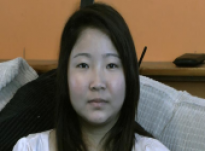Ruby

Ruby has to take steroids as part of the treatment for lupus. However, the steroids cause a thinning of the bones and the trial is to see which medicine is best that prevents this from happening. Ruby does not know which medicine she is taking.
Ruby aged 17, is Chinese, lives with her parents, and goes to a local high school. Ruby was diagnosed with lupus at the age of 16 and soon after was invited to take part in a randomised placebo controlled drug trial. Ruby agreed to take part and is still in the trial.
More about me...
Ruby is 17 years of age, Chinese, lives with her parents, and attends a local high school and enjoys playing badminton. Ruby was diagnosed with lupus at the age of 16. Soon after she was diagnosed Ruby was invited to take part in a clinical trial. The research nurse at the hospital approached Ruby and gave her lots of information about the trial to read at home. The nurse also talked to Ruby about the trial and what it involved.
It was explained to Ruby that she would be randomly selected to take one of three drugs and that she would have to take this for one year. One of the drugs was a placebo. It was also explained that she would be monitored throughout the trial to see how she was progressing and make sure everything was okay. Ruby had plenty of time to make a decision, and discussed it with her parents.
Even though Ruby would not know which drug she was taking, she was happy to take part in the trial to help others who may have to take steroids in the future and to help her too. When Ruby has her regular hospital appointments, she has blood tests and a skin thickness test. She also completes a questionnaire that asks about how her health. However, she says doing these things doesn’t take up much time and she would have tests as part of her treatment for lupus anyway. Everything is done at the same time as her regular hospital appointments although it is difficult to know which tests are part of the trial and which are part of her normal care.
Ruby is supportive of clinical trials in young people.
Ruby took part in a randomised placebo controlled trial on finding the best treatment to prevent thinning of bones for people who take steroids.
Ruby took part in a randomised placebo controlled trial on finding the best treatment to prevent thinning of bones for people who take steroids.
Taking the extra medication with her regular tablets was easy for Ruby and she only attends hospital appointments every two to three months.
Taking the extra medication with her regular tablets was easy for Ruby and she only attends hospital appointments every two to three months.
Although Ruby receives some personal feedback at each hospital appointment, she is unsure if she will receive any feedback of the trial results, but she would like to know and may ask next time she visits the hospital for a check-up.
Although Ruby receives some personal feedback at each hospital appointment, she is unsure if she will receive any feedback of the trial results, but she would like to know and may ask next time she visits the hospital for a check-up.

